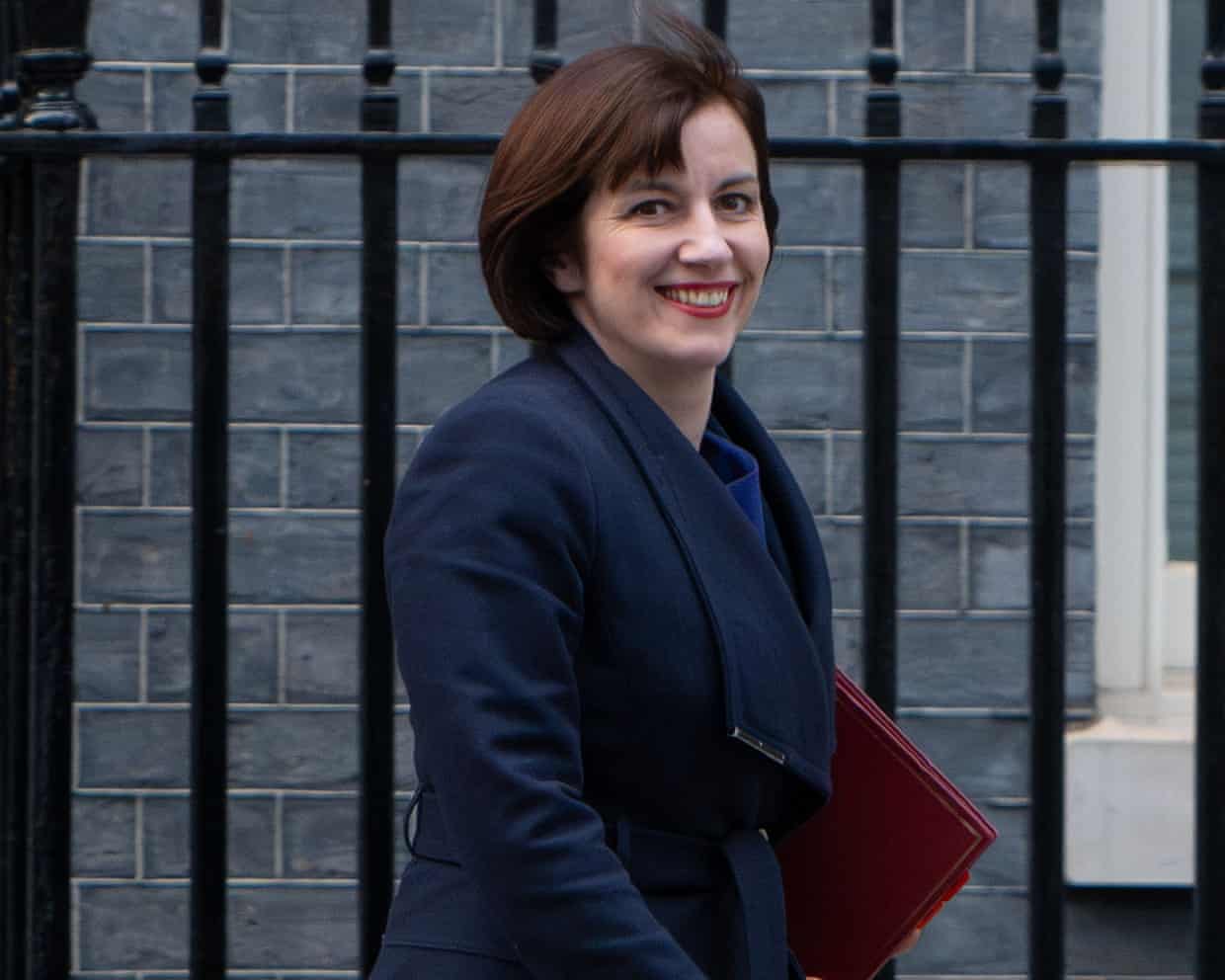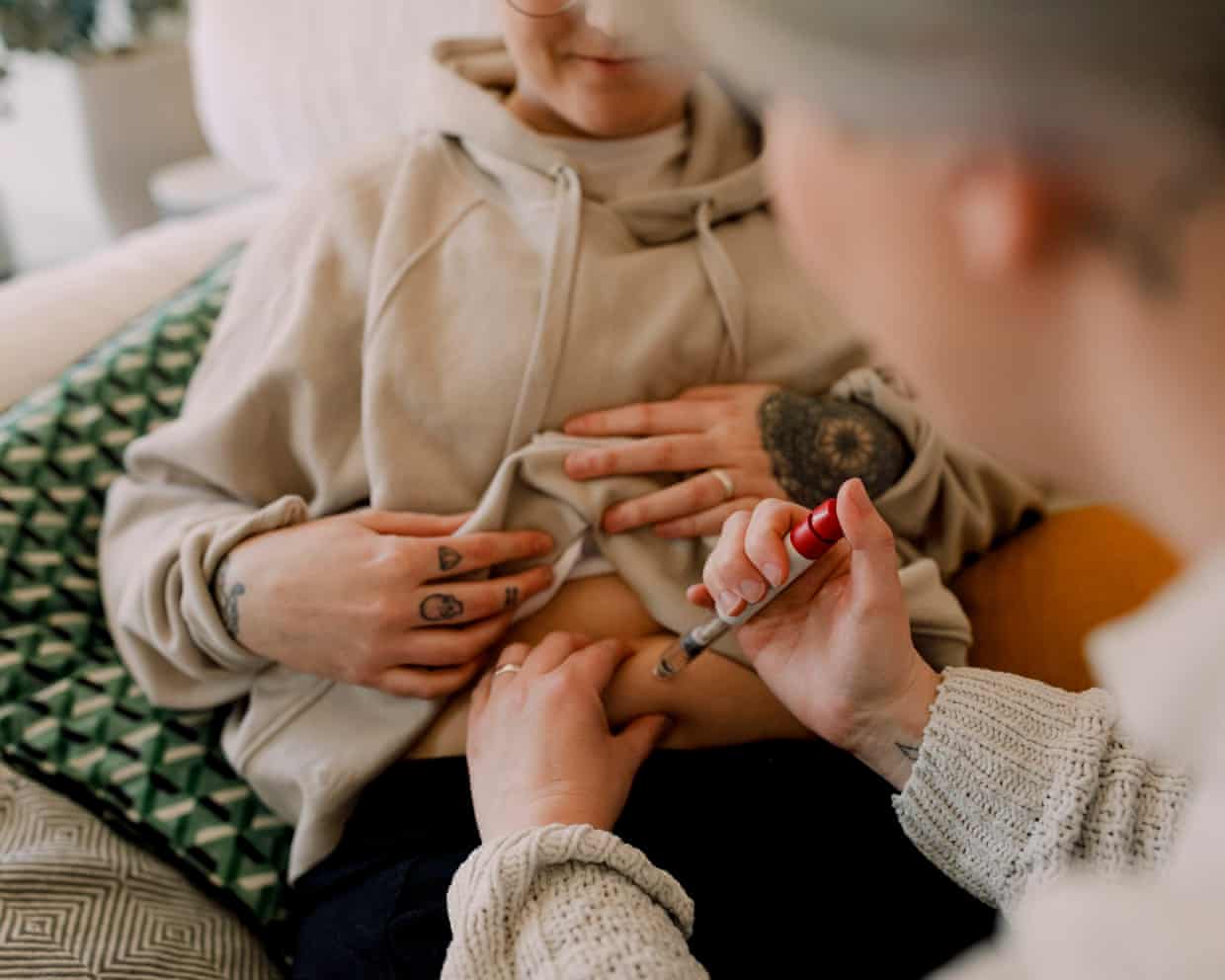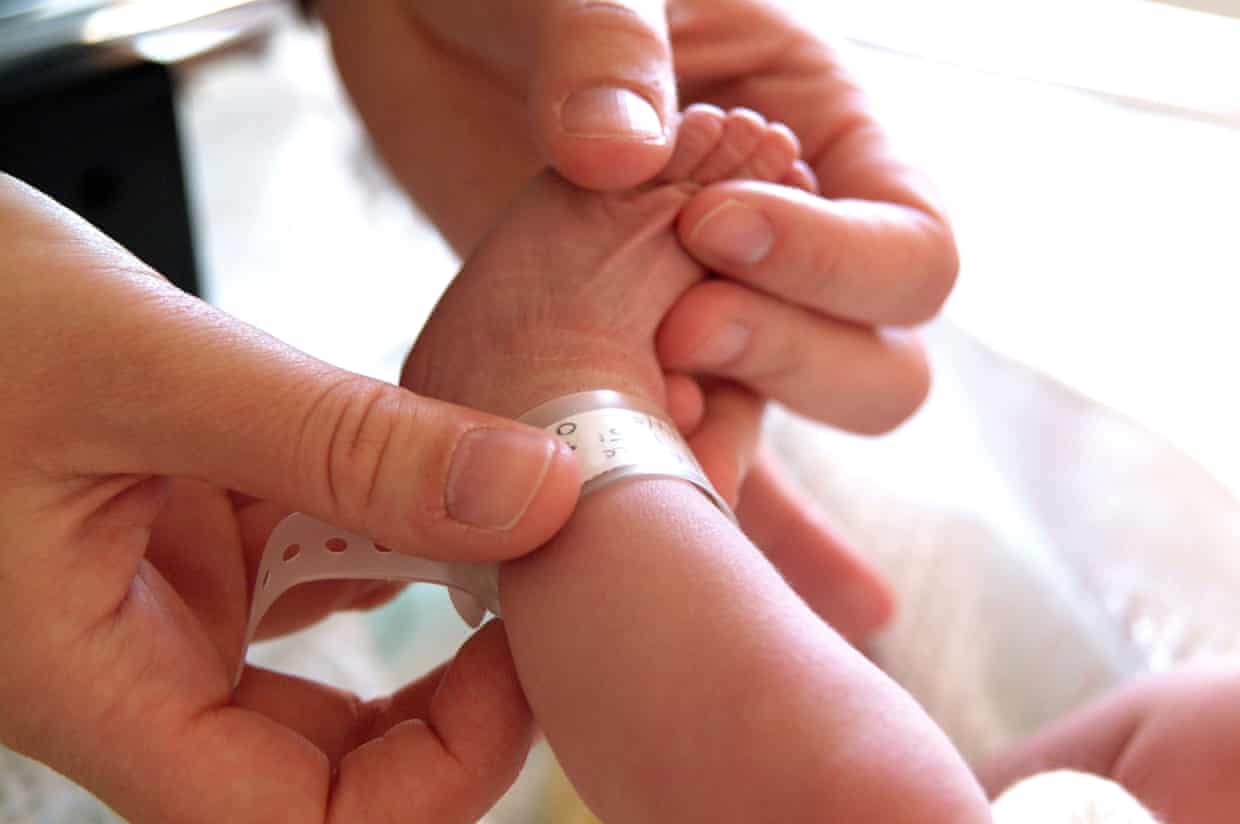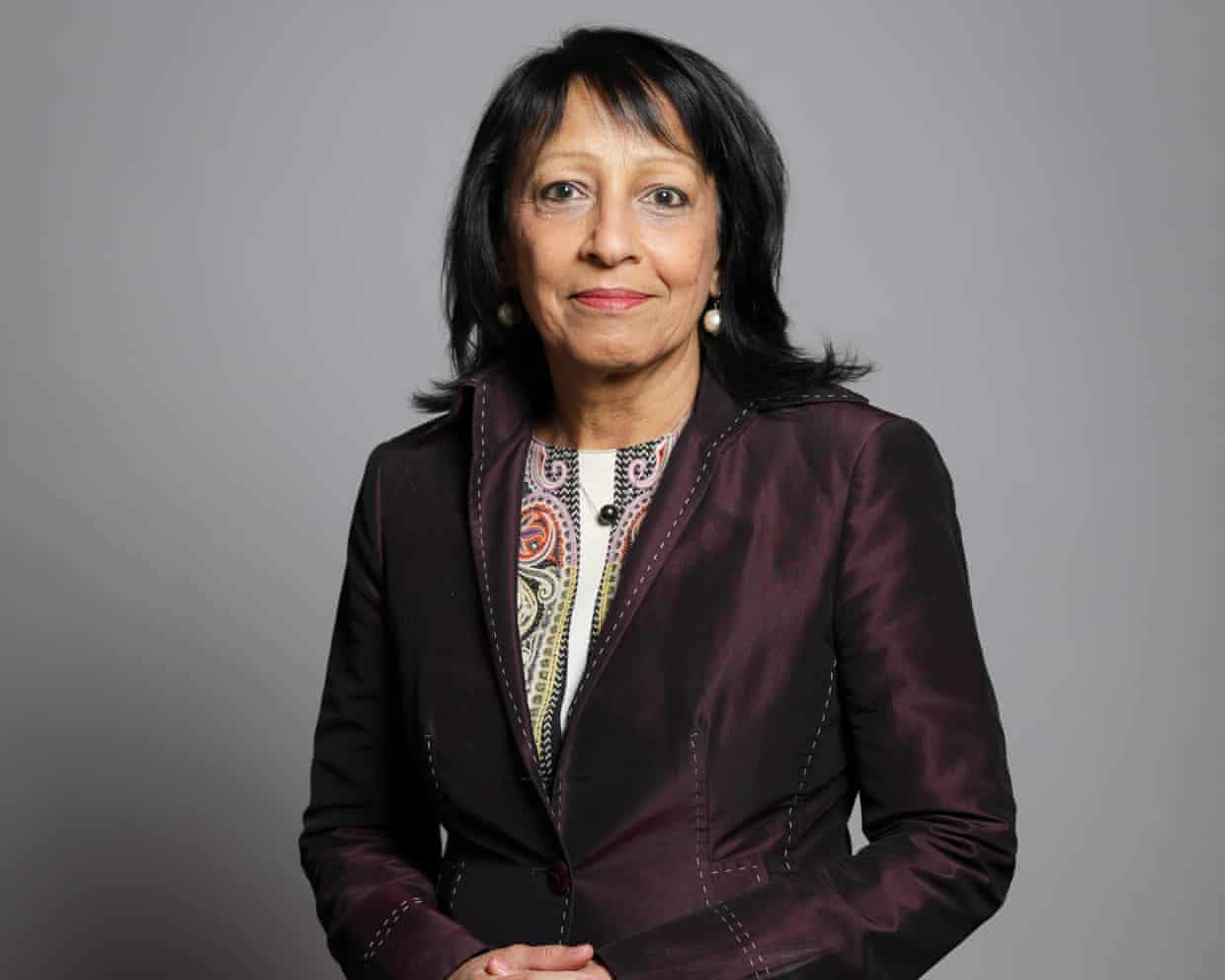Phillipson calls for ‘less public debate’ from EHRC on gender recognition rules

Bridget Phillipson has urged the equalities watchdog to focus more on helping ministers do their jobs and less on having public debates as a row continues about how long it will take to implement new rules on gender recognition.The comments by Phillipson, who is the equalities minister as well as the education secretary, come after the Equality and Human Rights Commission took the unusual step of urging the government to “act with speed” in approving its statutory guidance on responding to a landmark supreme court ruling on transgender rights.In a decision that delighted gender-critical activists, the UK supreme court ruled in April that the terms “woman” and “sex” in the Equality Act referred only to a biological woman and to biological sex.The EHRC compiled statutory guidance on how organisations should interpret the ruling and sent it to ministers for approval.But government officials have said it will take time to properly assess the 300-plus-page document and blamed the watchdog for delays in providing necessary information, including an equalities impact assessment.
Speaking to the Guardian, Phillipson said ministers also had to consult the devolved UK nations, and that the process could not be rushed.Asked about comments last month by the EHRC’s outgoing chair, Kishwer Falkner, who urged Phillipson to approve the guidance “as soon as possible”, the minister said this was unhelpful.“We’ll get this right,” Phillipson said.“We’ll do it thoroughly and carefully, but we also require the regulator to provide us with the information that we need as a government to consider all of that together – the code of practice, together with other material that we require.“And bit more focus on that and a little less focus on public debate would be helpful.
”Ministers are still considering the final guidance, which must be approved by Phillipson before being laid before parliament,While it is not yet public, sources at the watchdog have briefed that it is broadly similar to interim advice issued shortly after April’s ruling,The interim advice prompted alarm from some MPs and transgender groups, who said guidance that transgender people should not be allowed to use toilets meant for the gender they live as, nor in some cases toilets consistent with their birth sex, meant trans people would be in effect excluded from much of the public realm,The EHRC said last month that this interim advice had been withdrawn and taken down from its website,Asked if the new guidance would be ready for approval by Christmas, Phillipson said: “I can’t put a timescale on it.
I think what matters is that we go through it line by line.”She added: “We’re going through it line by line, but we also have to consult with the devolved governments as part of this process, and that work is currently under way.”Last month dozens of Labour MPs wrote to the business secretary, Peter Kyle, saying they had been contacted by many companies that were alarmed at the implications of the possible guidance, citing significant potential costs and a “minefield” of competing legal rights.Asked about the concerns of some MPs about the impact on trans people, Phillipson said: “I’ve always believed in the importance of single-sex spaces for women.I used to run a women’s refuge, I know how important it is that women who have experienced male violence and trauma have the time to heal in a safe environment.
“I’m also clear that trans people should not suffer prejudice or discrimination because of who they are.”The EHRC cast further doubt on the timescale needed to approve the guidance last week.The watchdog told the Times that it did not think there was any need to examine the cost to businesses, and again urged Phillipson to act swiftly.The newspaper cited critics of Phillipson saying she was delaying deliberately to avoid a row with backbenchers.A government source said this was “total nonsense”.
They said: “This is a long and legally complex document and we are carefully considering it – and we make no apology for it.It would be catastrophic for single sex-services to follow guidance that wasn’t legally sound and then place them in legal jeopardy again.That is why it is vital we get this right.“We have always been clear that the proper process needs to be followed, which includes understanding the potential impact on businesses, public functions and services.”

Firms not supporting staff through IVF could lose £217m in hidden costs, study shows
UK employers who do not formally support staff undergoing fertility treatments could be losing £217.3m a year in sick leave, lost productivity and resignations, research estimates.Companies without fertility leave pay £35,317 per affected employee, compared with a cost of £388 for 10 days’ paid leave when a clear fertility policy is in place, the campaign group Fertility Matters at Work estimated.“Employees currently have no legal right to take paid time off work for fertility treatment,” said Alice Macdonald, the Labour MP for Norwich North, who will raise the findings in a 10-minute rule bill in parliament on Tuesday, in which she will put forward introducing a statutory right to paid time off for fertility appointments.She added: “A change in the law is not just a moral imperative but an economic one

Tell us: are you a UK centenarian or do you know one?
The number of centenarians (aged 100 years and over) in the UK has doubled from 8,300 in 2004 to 16,600 in 2024, according to the Office for National Statistics.Between 2004 and 2024, the number of male centenarians has tripled from 910 to 3,100. During the same period, the number of female centenarians almost doubled from 7,400 to 13,600.We would like to hear from centenarians, their family or friends, about what it has been like to bear witness to the past century’s seismic events and changes.Looking back, what advice would you give to your younger self? What is your secret to a long life? Let us know

Women must be warned of home birth risks and have access to skilled midwives, experts say
Women must be given clearer warnings on the potentially fatal dangers of giving birth at home and should only be aided by experienced midwives, experts have said.Maternity services worldwide are dealing with an increase in the number of women with more complex pregnancies. Many are choosing to have their baby in a familiar environment, in the comfort and privacy of their own home. Some choose a home birth because having their first baby in hospital was “deeply traumatic” and they are reluctant to repeat the experience.But access to safe, reliable and unrestricted home birth services is patchy, and varies enormously depending on where you live, experts say

Phillipson calls for ‘less public debate’ from EHRC on gender recognition rules
Bridget Phillipson has urged the equalities watchdog to focus more on helping ministers do their jobs and less on having public debates as a row continues about how long it will take to implement new rules on gender recognition.The comments by Phillipson, who is the equalities minister as well as the education secretary, come after the Equality and Human Rights Commission took the unusual step of urging the government to “act with speed” in approving its statutory guidance on responding to a landmark supreme court ruling on transgender rights.In a decision that delighted gender-critical activists, the UK supreme court ruled in April that the terms “woman” and “sex” in the Equality Act referred only to a biological woman and to biological sex.The EHRC compiled statutory guidance on how organisations should interpret the ruling and sent it to ministers for approval. But government officials have said it will take time to properly assess the 300-plus-page document and blamed the watchdog for delays in providing necessary information, including an equalities impact assessment

Pornography depicting strangulation to become criminal offence in the UK
Porn featuring strangulation or suffocation – often referred to as “choking” – is due to be criminalised, with a legal requirement placed on tech platforms to prevent UK users from seeing such material.Possessing or publishing porn featuring choking will become a criminal offence under amendments to the Crime and Policing bill tabled in parliament on Monday.In a separate amendment, victims of intimate image abuse will also have longer to come forward, with the time limit to prosecute extended from six months to three years.The government said this would help break down unnecessary barriers victims face when reporting a crime, “improving access to justice for those who need it the most”.The choking ban comes after a recommendation from a government review into pornography which found it has contributed to establishing strangulation as a “sexual norm”

Equality commission’s guidance after sex ruling is fundamentally unworkable | Letter
Contrary to what Kishwer Falkner is suggesting (Letters, 28 October), MPs’ problem with the Equality and Human Rights Commission’s (EHRC) guidance was not that it failed to address every conceivable scenario, but that it set out fundamentally unworkable instructions to businesses that go far beyond what the supreme court actually ruled, and which places them at risk of costly litigation.Take the question of using a gendered bathroom – hardly a niche issue, given it is something most of us do on a daily basis. The EHRC’s guidance places the onus on businesses to police whether people are using a bathroom that corresponds with their sex assigned at birth.However, there is no practical way for businesses to know whether someone is transgender – based solely on their appearance – and challenging people risks humiliation for trans people and others whose appearance doesn’t neatly fit with society’s expectations. I have already heard appalling stories of women being aggressively challenged while waiting in a queue for the bathroom

OpenAI signs $38bn cloud computing deal with Amazon

Oakley Meta Vanguard review: fantastic AI running glasses linked to Garmin

‘History won’t forgive us’ if UK falls behind in quantum computing race, says Tony Blair

In Grok we don’t trust: academics assess Elon Musk’s AI-powered encyclopedia

Has OpenAI really made ChatGPT better for users with mental health problems?

Boom or bubble? Inside the $3tn AI datacentre spending spree